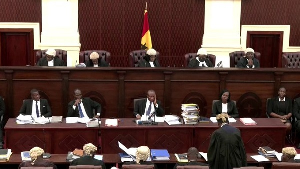The Ghana National Consumers Association (GNAC) on Thursday appealed to the government to restrain Ghana Telecom (GT) from operating mobile telephone service.
This, it said, is to prevent monopolisation of the telecom market by GT and to allow consumers to have a choice among various service providers at competitive prices. Mr Francis Badu-Brown, Executive Director of GNAC, made the call at the first GNAC consumer conference at the on-going Ghana International book fair.
"We are saying that GT should be restrained from operating mobile services because it would break the smaller mobile telephone companies and enhance GT's monopoly," he said.
He said this would be to the detriment of consumers' right to choose products and services at competitive prices with the assurance of satisfactory and quality service. Mr Badu-Brown also appealed to the government to set up an enquiry into the billing system of utility companies, especially GT.
He noted that consumers all over the country are questioning the genuineness of telephone bills. "We are glad to hear the President's announcement that government will reform the power industry. That will break the monopoly of the Electricity Company of Ghana and we want a similar thing to be done in the telecom industry to break GT's monopoly."
Mr Badu-Brown noted that the absence of a single consumer protection law (CPL) in this country allows businesses to flood the market with poor quality and shoddy goods and services.
This violates consumer rights to quality services. "We therefore appeal to the government to put together a single CPL, to protect the rights of consumers and prevent business from advertising and selling shoddy products," he said.
Mr Badu-Brown said although GNAC supports a free market policy, it believes that the importation of certain products such as canned coconut, "nkatie burger" and a host of others is not necessary.
He therefore called on importers to stop importing them consumers to shun such products and patronise the more nutritious local alternatives. Mr Ekow Mills, a director of GT said his company is in the process of reaching an interconnectivity agreement with its competitors.
He declined any further comments saying their competitors have taken the matter to court and the national communications authority is also in the process of solving it. The director of finance and administration of Association of Ghana Industries, Mr Sam Boakye urged Ghanaians to patronise made in Ghana goods to create jobs for the unemployed and also reduce the pressure on the cedi.
Mrs Susan Boateng, President of GNAC stressed the need to set standards for products imported into the country. The conference was addressed by personnel from utility organisations, Ghana Standards Board, and Food and Drugs Board.
Click to view details



Business News of Friday, 17 November 2000
Source: GNA
















